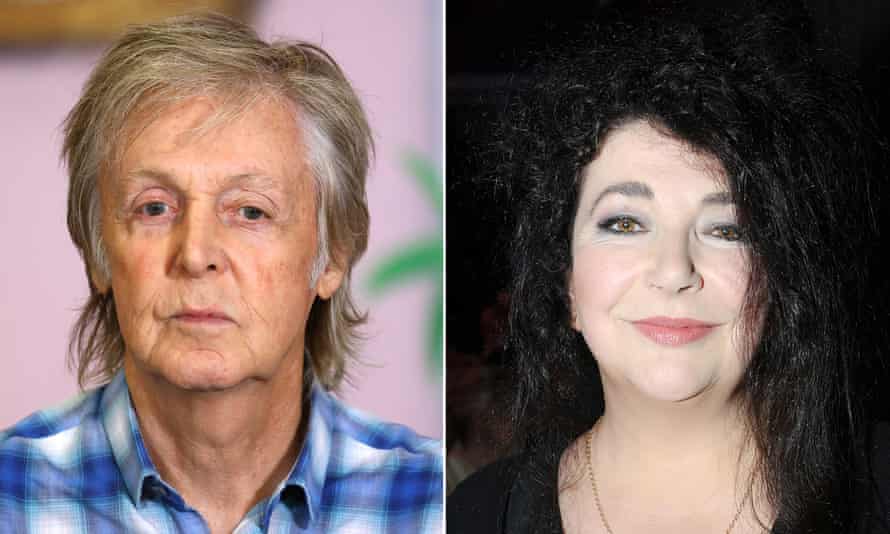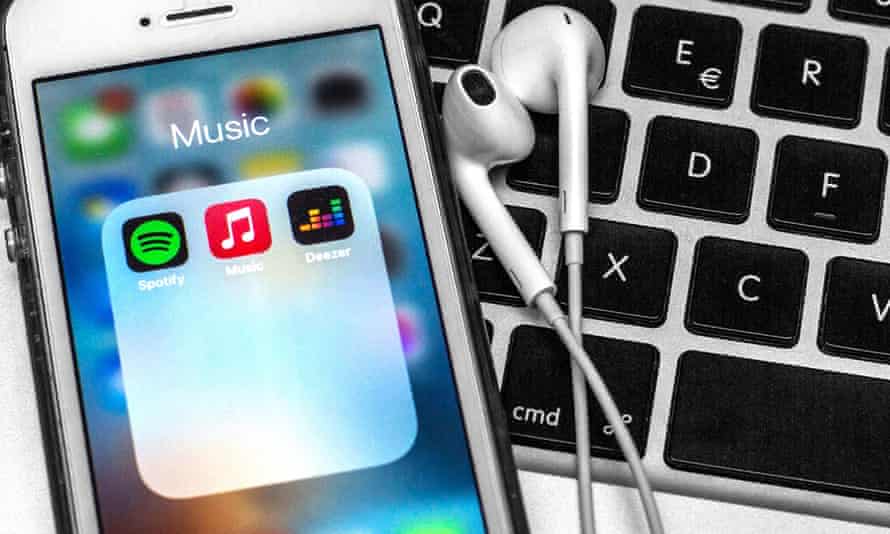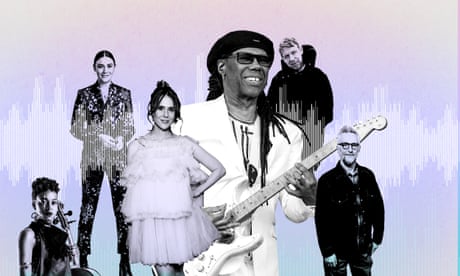Paul McCartney and Kate Bush lead call for change to music streaming payments
Open letter to Boris Johnson signed by 156 musicians including Led Zeppelin and Annie Lennox aims to reword 1988 Copyright Act

British musicians including Paul McCartney, Kate Bush and Chris Martin have signed an open letter calling on Boris Johnson to enforce changes to the economic model of streaming.
“For too long, streaming platforms, record labels and other internet giants have exploited performers and creators without rewarding them fairly. We must put the value of music back where it belongs – in the hands of music makers,” begins the letter to the prime minister – signed by 156 artists.
Their proposal centres on a suggested change in wording to the 1988 Copyright Act to bring royalty payments more in line with how those in radio are paid, while acknowledging the very different on-demand nature of streaming. The change in the law, the signatories argue, would mean that streaming companies would have to make “equitable remuneration” to artists via a rights collection company, a method already enshrined in British law for music played on the radio
UK radio stations purchase a licence from a rights collection company, which then uses that revenue to distribute royalties to songwriters and performers based on how often their songs are played. With streaming, revenue from users is pooled by each streaming company, such as Spotify or Apple Music. Royalty payments are distributed by each company to the rights holder – usually a record label, who take their own share depending on their deal with the artist – according to the number of plays and other undisclosed formulas. The royalty rates are set by each company.
The signatories complain that the level of agency afforded to streaming companies needs to change, and a UK regulator also be brought in.
Their statement complains of “multinational corporations wielding extraordinary power and songwriters struggling as a result. An immediate government referral to the Competition and Markets Authority is the first step to address this … we need a regulator to ensure the lawful and fair treatment of music makers.”
Other signatories include Sting, Gary Barlow, Noel Gallagher, Annie Lennox, Damon Albarn, and Led Zeppelin’s Jimmy Page and Robert Plant.

Horace Trubridge, head of the Musicians’ Union, which is backing the letter with a petition campaign, said British law “simply hasn’t kept up with the pace of technological change. Listeners would be horrified to learn how little artists and musicians earn from streaming when they pay their subscriptions.”
As well as streaming companies being targeted for more revenue to be shared with songwriters and performers, Crispin Hunt, chair of the songwriter organisation Ivors Academy took aim at record companies, calling them “marketing firms. Without manufacturing and distribution costs, their extraordinary profits ought to be shared more equitably with creators.”
The letter, also worked on by Tom Gray of the #BrokenRecord campaign, comes in the wake of a government inquiry into the economics of streaming, that ran from November until March. MPs heard testimony from artists such as Elbow frontman Guy Garvey, who said the “system as it is is threatening the future of music”.
Amid wider calls for more transparency and change in the sector, Apple Music messaged artists last week to state that they paid an average of one US cent per stream. Spotify has launched Loud & Clear, a website outlining how it pays the artists on its platform. Chief executive Daniel Ek said: “Our goal is to help musicians that aspire to be, or are, professional to make a living.”
Charlie Hellman, the service’s vice president and head of marketplace, told Pitchfork it was “constantly testing” ways to price its service to maximise revenue, “because if we can find the revenue-maximising price, that’s best for Spotify and it’s best for all artists. When we grow our revenues, artists’ revenues grow. When we make our programming better, more artists can fit in and have a chance to grow an audience.”
However, Spotify and its rivals often oppose efforts to increase their royalty payments, and any definition of “equitable remuneration” in the UK, even if brought into law, is likely to be highly contested.
After a 2017 US ruling that ordered the percentage of revenue paid to songwriters rise from 10.5% to 15.1%, Spotify, Google, Amazon and Pandora opposed the ruling in a statement that the US National Music Publishers Association called “shameful”. The companies scored a partial win in August 2020, with a court finding fault in the methodology used to calculate the new rates, requiring them to be recalculated. The case continues.
Apple Music declined to comment on the open letter; the Guardian has also contacted Spotify for their reaction.

No comments:
Post a Comment